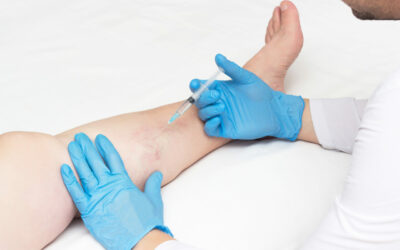
Advantage Healthcare: What Kind of Doctor Treats Varicose Veins?
Varicose veins can be a troublesome condition, affecting millions of individuals worldwide. Seeking the right medical professional to address this issue is crucial for effective treatment and management. In this comprehensive guide, we explore the question: what kind of doctor treats varicose veins?
Understanding Varicose Veins:
Before delving into the specifics of treatment, it’s essential to understand what varicose veins are. Varicose veins are enlarged, twisted veins that often appear blue or dark purple and may cause discomfort or pain. They commonly occur in the legs and can be caused by various factors, including age, genetics, obesity, and prolonged standing or sitting.
Primary Care Physicians:
Many individuals begin their journey towards addressing varicose veins by consulting with their primary care physician. These doctors serve as the first point of contact for patients seeking medical assistance. While primary care physicians may provide initial guidance and referrals, they typically do not perform specialized treatments for varicose veins.
Vascular Surgeons:
Vascular surgeons specialize in the diagnosis and treatment of conditions affecting the circulatory system, including veins and arteries. They are highly trained in surgical procedures and interventions related to vascular health. Vascular surgeons often perform procedures such as vein stripping, endovenous ablation, and sclerotherapy to treat varicose veins effectively.
Interventional Radiologists:
Interventional radiologists are experts in using advanced imaging techniques to guide minimally invasive procedures. They play a significant role in treating varicose veins through procedures like radiofrequency ablation, laser therapy, and foam sclerotherapy. Interventional radiologists offer precise treatments with reduced risk and faster recovery times compared to traditional surgery.
Phlebologists:
Phlebologists are medical professionals who specialize in the diagnosis and treatment of vein disorders. They often have extensive experience in managing varicose veins and other venous conditions. Phlebologists may utilize a combination of techniques, including ultrasound-guided procedures and cosmetic treatments, to address varicose veins and improve vascular health.
Dermatologists:
Dermatologists focus on diagnosing and treating conditions affecting the skin, hair, and nails. While their primary focus is dermatological issues, some dermatologists specialize in cosmetic dermatology and may offer treatments for varicose veins, such as sclerotherapy. Dermatologists can provide valuable insights and options for individuals seeking cosmetic improvement or relief from varicose veins.
Certified Nurse Practitioners and Physician Assistants:
Certified nurse practitioners (NPs) and physician assistants (PAs) work closely with supervising physicians to provide comprehensive care to patients. In some healthcare settings, NPs and PAs may specialize in vein care and assist in diagnosing and treating varicose veins under the supervision of a qualified physician. They often play a crucial role in patient education and follow-up care.
Conclusion:
In conclusion, various medical professionals can treat varicose veins, each bringing unique skills and expertise to the table. Whether you consult with a vascular surgeon, interventional radiologist, phlebologist, dermatologist, or another healthcare provider, seeking specialized care is essential for effective management of varicose veins. By understanding the role of different doctors in treating this condition, individuals can make informed decisions about their healthcare journey and achieve optimal outcomes.
Leave Your Comment